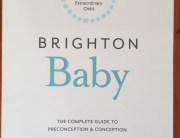 DHEA is a natural steroid hormone produced from cholesterol by the adrenal glands, and in the body it is converted into testosterone and estrogen. The most abundant of all steroid hormones in humans, DHEA declines as we age. The concept in regards to fertility is that androgens may augment FSH-receptor expression and stimulate granulosa cell proliferation. This could potentially increase oocyte yield, by increasing the number of follicles responding to exogenous FSH administration and by improving the quality and pregnancy potential of the retrieved oocytes.
DHEA is a natural steroid hormone produced from cholesterol by the adrenal glands, and in the body it is converted into testosterone and estrogen. The most abundant of all steroid hormones in humans, DHEA declines as we age. The concept in regards to fertility is that androgens may augment FSH-receptor expression and stimulate granulosa cell proliferation. This could potentially increase oocyte yield, by increasing the number of follicles responding to exogenous FSH administration and by improving the quality and pregnancy potential of the retrieved oocytes.
“Apparently the maximum effect of DHEA kicks in only after about four months,” says leading fertility researcher Dr Norman Gleicher. It’s also important to note that Gleicher thinks that DHEA can only boost egg production when used in combination with prescribed fertility drugs. “In a natural cycle, it doesn’t matter how many eggs a woman produces. In the end her body will release usually only one,” he explains. “When you are on fertility drugs we make the body release more eggs. And so in order to get the full benefit of DHEA, it is very likely that it will have to be taken in combination with fertility drugs so that the woman does release more than just one egg.”
Dr Gleicher has begun to conduct a larger controlled, double-blind study that might offer more concrete proof that DHEA can increase egg yield in older women. The results are due out in March 2010 but in the meantime, read below for his initial research literature results.
For optimal fertility health, it is vital to look at the health of your adrenal glands and support them using natural therapies. Stress has a huge impact on our adrenal glands, as they are activated when we feel tense or anxious. Adrenaline is secreted by the adrenals and it is very common for patients to present with the symptoms of adrenal fatigue. These include:
• Cravings for sugar• Cravings for salt on food when you eat• Feel dehydrated and thirsty and require plenty of water• Difficulty falling asleep at night, sleep lightly or wake early or often• Difficulty relaxing, nervous, anxious or hyperactive• Often spacey, or foggy thinking, even memory loss• Lack willpower to accomplish• General exhaustion• Hormone imbalances• Low libido• Weight gain, especially in abdomen and waist area• Losing muscle tone
So, if you are suffering from more than three of the above symptoms then it is time that you started to support your adrenal glands. There are many herbal medicines and therapeutic nutrients that will help you to address adrenal fatigue. Ask me at your next appointment to begin addressing your adrenal gland health.
Effect of dehydroepiandrosterone on oocyte and embryo yields, embryo grade and cell number in IVF
BACKGROUND: The aim of this study was to investigate the effect of treatment with dehydroepiandrosterone (DHEA) on fertility outcomes among women with diminished ovarian reserve. MATERIALS AND METHODS: This is a case–control study in an academically affiliated private infertility centre. Twenty-five women with significantly diminished ovarian reserve had one IVF cycle before and after DHEA treatment, with otherwise identical hormonal stimulation. Women received 75 mg of DHEA daily (25 mg three times daily) for an average of 17.6 ± 2.13 weeks. We performed a comparison of IVF outcome parameters, before and after DHEA treatment, including peak estrodiol (E2) levels, oocyte and embryo numbers, oocyte and embryo quality and embryo transfer statistics. RESULTS: Paired analysis of IVF cycle outcomes in 25 patients, who underwent cycles both before and after DHEA supplementation, demonstrated significant increases in fertilized oocytes (P < 0.001), normal day 3 embryos (P = 0.001), embryos transferred (P = 0.005) and average embryo scores per oocyte (P < 0.001) after DHEA treatment. CONCLUSION: This study confirms the previously reported beneficial effects of DHEA supplementation on ovarian function in women with diminished ovarian reserve.
Human Reproduction 2006 21(11):2845-2849; doi:10.1093/humrep/del254



































